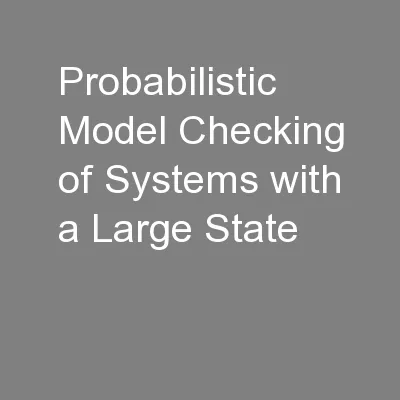PPT-Probabilistic Inference Modulo Theories
Author : trish-goza | Published Date : 2018-02-27
Rodrigo de Salvo Braz Ciaran OReilly Artificial Intelligence Center SRI International Vibhav Gogate University of Texas at Dallas Rina Dechter University of California
Presentation Embed Code
Download Presentation
Download Presentation The PPT/PDF document "Probabilistic Inference Modulo Theories" is the property of its rightful owner. Permission is granted to download and print the materials on this website for personal, non-commercial use only, and to display it on your personal computer provided you do not modify the materials and that you retain all copyright notices contained in the materials. By downloading content from our website, you accept the terms of this agreement.
Probabilistic Inference Modulo Theories: Transcript
Download Rules Of Document
"Probabilistic Inference Modulo Theories"The content belongs to its owner. You may download and print it for personal use, without modification, and keep all copyright notices. By downloading, you agree to these terms.
Related Documents














